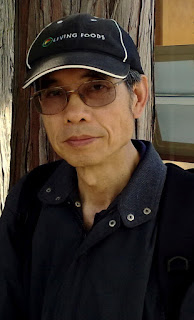Sunday has been spared for my day out if the weather promising. Where do I normally spend it? Beach, bush, the roadside café? Nah... Library is my favorite option, and on this beautiful day, the one in Takapuna is the best.
It is the best library I had ever been to, not because of its beauty of the building, or its huge stock of books, but because of its friendly librarians and its location in the town-- beach at its East side within a short walking distance and the business center of the town on the other. You can look out to the beautiful ocean view from the first floor while you are reading.
It was a clear day yesterday, so I left home early to go to Takapuna library. I had a three hour stay in the library enjoying my late acquired hobby of reading. While the book that I am reading now is to be finished soon, so I went to the shelf to fetch the book "to kill a Mocking bird" which the computer said was available in the library. But when I followed the call number to its location, the book could not be found at or around where it should be. This book was recommended to me by our family friend, Michelle, who is a very spiritual type of person from England in early 1990s. So far she already recommended me three books all are very enjoyable to me.
So I approached the librarian on the desk for assistance. I said to her that I could not find a book which the computer said was available in this library. She asked me what was the title. I told her the title and was wondering how she could help as the book was indeed disappearing from its place and I only wanted to report my discovery about this fact to her so that she can update the status of that book in the database. Amazingly she smiled at me and said "it was a very popular book, now follow me please." and led me to another section of the shelves as if she already knew that the book of that call number was not there but she knew that another book of exactly the same title could be found somewhere she was leading me to.
Without much effort spent in her search, she grabbed a book from the cart, and it was exactly the book I was after. I was very amazed by her ability of remembering all the details of a book. Then I turned to her to give my gratitude that was when I noticed that she wore a very thick glasses. I thought she might have read the whole lot of books in the library. I smiled at her saying: "you have a marvelous memory", before I was turning to leave. She asked me to wait a second, and took another book that was a lot thinner than the one I already got from the shelf. She flipped through the pages while telling me it was of the same title in the form of playwright. I thanked her saying "no, thank you, I'm happy with this one and it will keep me going for three weeks." That was her second round of demonstrating her art of book management.
Having got the book, I walked to the first floor, took a seat facing toward the big window which I could look out to the picturesque ocean view. Before I had mentally and physically settled in my seat, I connected my mobile device with a free Internet connection provided by the library, and sent e-mails to my friends, and the text messages to my families of my latest updates. within a few minutes, my mobile device beeped to the incoming messages of their updates in return. How amazing the IT technology is.
Then my mind steeped into the world in the reading. With the printed language being picked up from the page of the book by the eyes and interpreted by the brain, the ideas or thoughts of the author are being screened, assorted, investigated, compared with, commented, agreed with, disagreed with, and etc. of processes by our brain. Wouldn't it be far more amazing then our mobile device? I don't believe that in the near future a super computer equivalent to human intelligence will ever be created.
It was time for lunch. I walked down through the staircases and walked out of the library into the courtyard right in front of the building. I opened my back pack and took out my lunch which my wife has prepared for me that morning. It was water boiled dumplings. After I had consumed three or four pieces of them, I thought why did I not snap a self portrait? So I took out my mobile device and created this profound picture.
After I had finished my lunch and done with my medication, I walked straight away into the library again and to where I was originally seated this morning. I thought while I was passing by the reception desk Takapuna library could be the most attractive place to me that it was able to pull me in right after the lunch.
Time passed by very quickly, unexpectedly people around me began to pack up and a minor commotion arose from here and there. Before long, the security guard walked through every corner of the library swaying a bell. I quickly took out my mobile device, and tapped the following text message "the bell tolls now, and I am going home."
And that put an end to my lovely day out.































